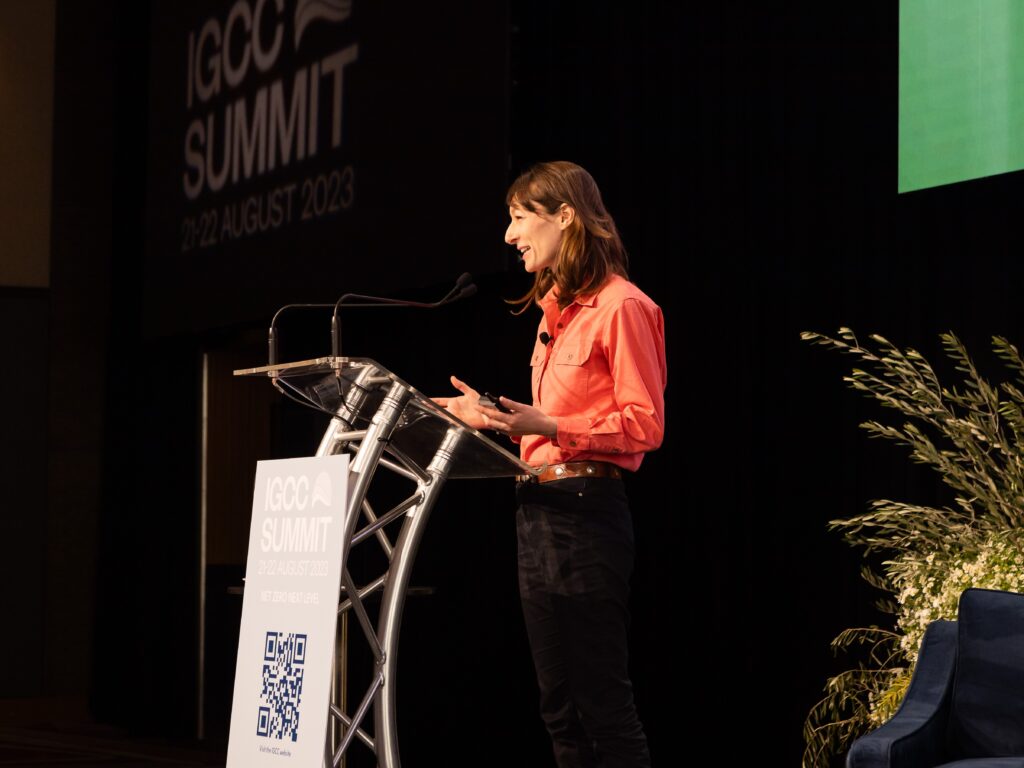IGCC Summit 2023: Physical Risk and Resilience
6 October 2023
Across many of our speakers and panels, we heard about the role investors can play in adapting to the impacts of climate change and building community resilience.

Senator Jenny McAllister summarized the need to take a collaborative approach to resilience: “It’s about finding the right tools that will give investors the confidence to take the leap. Investment in adaptation is investment in our long-term stability.”
IGCC LAUNCHED OUR ‘ROAD TO RESILIENCE’ STRATEGY
- IGCC CEO Rebecca Mikula-Wright launched the ‘Road to Resilience: Physical Risk Strategy, 2023–25’, calling for investable policies that help investors proactively address physical climate risks.
- Institutional investors are exposed to cascading physical risks directly and indirectly.
- ‘Road to Resilience’ will guide investors to effectively support a systemic response to climate change’s physical risks by:
- integrating physical risk into current climate-related processes
- developing a shared understanding
- advocating for proactive policy that drives investment
- deploying capital into adaptation and resilience.
STORIES OF COMMUNITY AND RESILIENCE
- We previewed a portion of Olivia Katz’s documentary ‘Out of the Mud’ on the 2022 Northern Rivers flooding. It portrayed the stories of the community dealing with an internally displaced population and the resilience and strength of the community spirit in the face of such tragedy.
- Dr Anika Molesworth, co-founder of Farmers for Climate Action shared evocative storytelling of her experience witnessing dust storms in her homeland in Wilyakali country and how to ‘cultivate climate courage’. Acknowledging that we have 250,000 more mouths to feed every day, she poignantly reminded us that we are losing productive land (arable land and forests). ‘Drought is a thief’ and ‘a degraded natural world is a degraded future’.
- We heard a confronting example about the systemic risk from climate change in the US where State Farm and Allstate insurance companies have stopped issuing new home insurance policies in California due to the increasing risk of wildfires.
THE SUPPORTING CLIMATE SCIENCE
- Professor Mark Howden, Director of the Institute for Climate, Energy & Disaster Solutions at The Australian National University, reviewed the latest science behind the rising intergenerational and distributional equity issues. He reiterated that “we are massively underdoing climate adaption. It is fragmented, incremental, and unequally distributed.”
- He demonstrated research showing that today’s children will live through three to four times more climate disasters than their grandparents, essentially “lurching from one disaster to the next”. Given the long tail of recovery from climate disasters, they will be continuously living in this state. However, the cooler we can keep the planet, the more likely we’ll be able to recover from one disaster before the next hits.
- Dr Dmitri Lafleur, Chief Scientist at the ACCR somberly reminded us that keeping to the Paris Agreement doesn’t mean we are safe from climate impacts, in the panel discussion “Unlocking Australian Sector Pathways”.
THE NEED FOR CAPITAL DEPLOYMENT
- Dr Mark Howden said that “action on climate change is so much cheaper than inaction on climate change across every level, it’s the rational thing to do”.
- During the panel discussion, “How to Build Resilience”, Kuldeep Yadav, Head of ESG and Climate Research ANZ at MSCI shared analysis of the 10 largest cities globally under 1.5°C and 3.0°C scenarios. The research showed that under the 3°C scenario, there will be an additional 12 hot days per year, causing a four times increase in the adaptation cost for extreme heat. His findings showed that a change in climate hazards often has a disproportionately outsized change in the impact.
- The scale of adaptation that is required in Australia can seem immense, but Dr Howden encouraged the Summit to reframe this as an opportunity for investors.
- Crystal Fleming, Chief of Partnerships and Impact at Resilient Building Council revealed that 2 million homes in Australia are currently not resilient to disasters: that’s a $60B need for capital deployment.
A heartfelt thanks to all our speakers, sponsors, and attendees who made this Summit an inspiring and informative event.